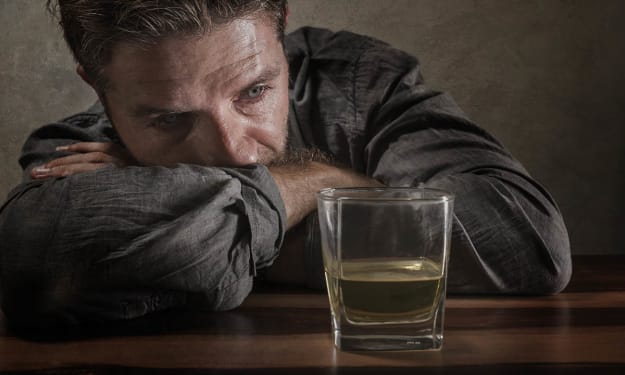All About Alcohol Detox
When Is It A Good Time To Stop?

Alcohol detox is not something that is done very often. Withdrawal from alcohol is very difficult and not everybody can accomplish it on their own without professional help. That problem is why most alcoholics are given alcohol detoxification treatment and detox at rehabilitation centers across the country.
Alcohol Detox is a treatment process where the patient is given therapy, support and rehabilitation in an environment designed to help them beat alcoholism. In this article we will talk about some of the symptoms of withdrawal and how you can recognize them if they are a part of your alcohol detox experience.
Alcohol detoxing can be done in one of two ways - inpatient or outpatient. Many people find out about alcohol detox in the hospital because when they go to a medical doctor for a checkup, the doctor also mentions detoxing.
The hospital medical staff has to make sure that the patient has been properly detoxed and that there are no physical complications that could interfere with detoxing or recovery.
When you begin alcohol detox you may find yourself drinking more. You may feel tired and hungry and might have problems concentrating. These are signs of mild to severe withdrawal symptoms. Symptoms of more advanced withdrawals include shaking, memory loss, anxiety, depression, seizures, hallucinations, profuse sweating, nausea and diarrhea.
The goal of alcohol detox at a rehabilitation center is to make you through the detox period without a single incident of withdrawal. The medical staff uses medication along with therapy, support and counseling in treating withdrawal symptoms. Some of the medications used include benzodiazepines and opiates.
Benzodiazepines are used to treat anxiety, depression, memory loss, epilepsy and restlessness while opiates are used to treat pain, constipation and insomnia. For patients who do not respond to benzodiazepines or opiates, other drugs including methadone, hydroxyzine and pimozide can be tried.
The use of benzodiazepines and opiates should be discontinued two to four weeks before your scheduled detox date. Taking benzodiazepines or opiates during detox increases the risk for complications such as seizures, which can be fatal. In addition, these medications increase the level of anxiety in the patient and slow the healing process.
You will be monitored closely during your alcohol detox by health care providers to ensure that you are not at risk of relapse. Health care professionals also will monitor your progress and may adjust your dosage or change the medication in conjunction with your progress to prevent seizures.
If you take medications to treat your anxiety, depression, tremors, etc., be aware that these medicines can contribute to complications during alcohol withdrawal. Many people try to wean themselves off prescription medications by slowly reducing their doses over several days.
However, if this is not successful, it may be necessary to start taking fewer medications or alternate medications to help stabilize symptoms. This can increase the length of time you will be hospitalized and increase the amount of time it takes you to return to normal activity.
Another consideration is the amount of alcohol you will need to stop drinking on a daily basis. It is common for most alcoholics to need to stop drinking ten days before their scheduled detox time.
This will help them avoid cravings and eliminate the need to drink during the day. The longer you drink on a daily basis, the more difficult it will be to stop drinking, since you will be introducing more drink into your system.
There are many people who only need to stop drinking one or two drinks per week to achieve a successful alcohol detox. For these individuals, you may only need to abstain for a week. The more you drink, however, the longer it will take to get rid of the cravings and withdrawal symptoms.
If you are someone who regularly drinks more than seven alcoholic beverages a week, it will be important to consult with a doctor to find out which dosage of alcohol detox is best for you. Not all people experience the same withdrawal symptoms, so no matter what your needs, you should always consult a medical professional.





Comments
There are no comments for this story
Be the first to respond and start the conversation.